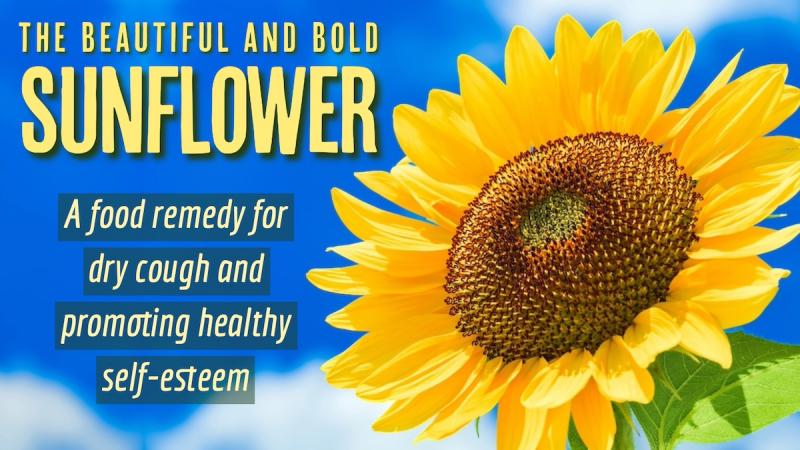
Fall is approaching and along all the roadsides where my wife and I go walking with the dogs, we see many wild sunflowers blooming. Sunflowers are native to North America and one of the food plants introduced to the world by Native Americans. Widely used for both their edible seeds and their oil, sunflowers also have some useful but seldom utilized medicinal properties. They are also grown just for their large, yellow flowers, which have value as a flower essence.
Sunflowers as Food
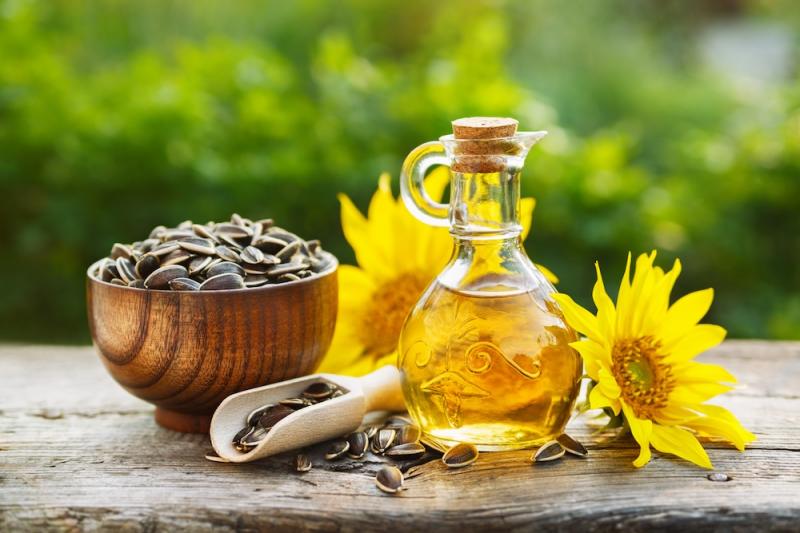 In his book Indian Givers, Jack Weatherford explains how historically eastern Europe lacked a good source of vegetable oil, due to its cold climate. That is until the Spanish brought the sunflowers that the Native Americans from the colder regions of North America had cultivated for their edible seeds and the oil.
In his book Indian Givers, Jack Weatherford explains how historically eastern Europe lacked a good source of vegetable oil, due to its cold climate. That is until the Spanish brought the sunflowers that the Native Americans from the colder regions of North America had cultivated for their edible seeds and the oil.
Today sunflowers are grown prolifically in eastern Europe. Ukraine and Russia constitute about 70-80% of the global production of sunflower oil. The sunflower is even Ukraine’s national flower, a symbol of their national identity. Sunflower seeds are also the most popular snack food in that country.
Sunflower Seeds for Medicine
Matthew Wood believes that sunflower seeds are an underutilized medicine. In the Earthwise Herbal, he shares stories of how eating sunflower seeds has been an effective remedy for getting rid of dry, irritating coughs. They can be eaten raw or made into a syrup to relieve bronchitis and prevent colds and flu in wintertime.
He also teaches that the seeds act as an adrenal tonic, aiding people with a weak and stressed nervous system. The seeds or cold-pressed oil can also benefit people with dry skin and hair.
Sunflower Leaves as Medicine
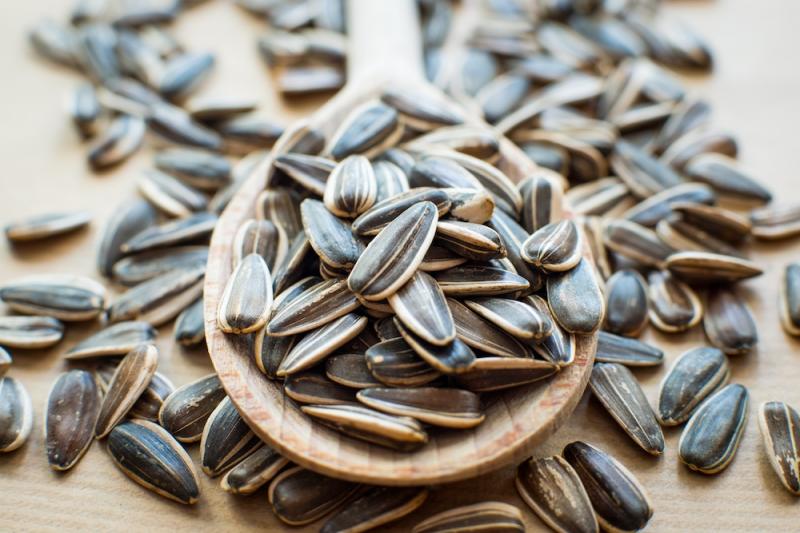 The leaves of sunflower are a very powerful astringent. This means they can be crushed and applied to help stop bleeding and take down swelling in wounds. They can also be crushed and applied to insect bites and stings. Taken internally sunflower leaf can stop watery diarrhea. However, don’t use too much as it will cause constipation. If you’re going to use it internally, make a tea and just sip a little. Don’t use it internally for more than a couple of days.
The leaves of sunflower are a very powerful astringent. This means they can be crushed and applied to help stop bleeding and take down swelling in wounds. They can also be crushed and applied to insect bites and stings. Taken internally sunflower leaf can stop watery diarrhea. However, don’t use too much as it will cause constipation. If you’re going to use it internally, make a tea and just sip a little. Don’t use it internally for more than a couple of days.
I read an interesting story once about a Māori medicine man in New Zealand who was visiting a sick friend at the hospital. He started having a sore throat and left the building to wander the grounds not wanting to infect anyone. He didn’t know the medicinal uses of the plants growing around the hospital because they weren't native to New Zealand. However, he was drawn to a sunflower plant growing there. It had a leaf that looked like it was being offered to him. He nibbled on it and it immediately helped to relieve his sore throat. I’ve always liked that story because it shows how nature can speak to us and lead us to the remedies we need if we’re paying attention.
Sunflower as a Detoxifier
Sunflower oil is one of the oils used in Ayurvedic oil-pulling therapy to clean the mouth, teeth, and tongue. Matthew Wood also makes reference to holding a small amount of sunflower oil in the mouth to pull toxins out of the mouth, having used it successfully for resolving toxicity in a client after she had dental work.
An interesting thing about sunflowers is that they are able to extract toxins from the soil. After the Chernobyl disaster, scientists planted sunflowers to remove radioactive elements from surrounding soils and ponds. They were also planted in Japan after the Fukushima disaster.
Sunflower Signatures
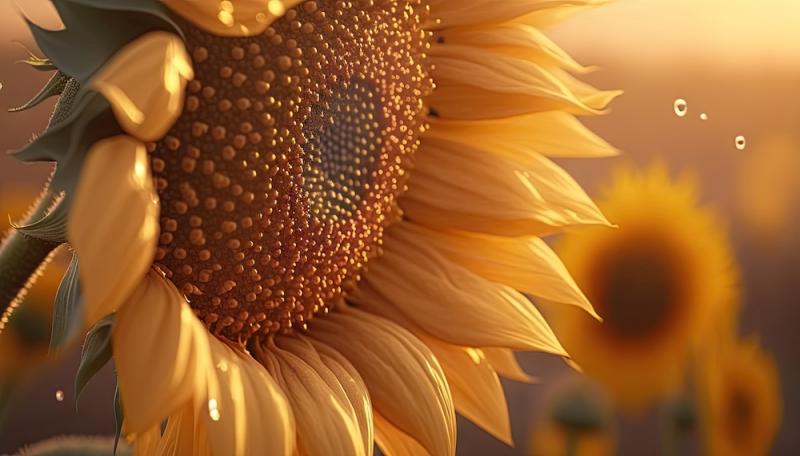 The common sunflower, Helianthus annuus, is also used as a flower essence. I vividly remember Jill Stansbury, a naturopathic doctor and professional herbalist, demonstrating the energetic pattern of sunflower at an herb conference I attended. Sunflowers get their name because they tend to turn their flower heads towards the sun, as if they are soaking in the sunlight. To demonstrate this, she looked to the east as if watching the sun rise and then lifted her head and arched it towards the west as if following the sun until it set. Then she bowed her head and arched it back towards the east as if waiting for the sun to rise again.
The common sunflower, Helianthus annuus, is also used as a flower essence. I vividly remember Jill Stansbury, a naturopathic doctor and professional herbalist, demonstrating the energetic pattern of sunflower at an herb conference I attended. Sunflowers get their name because they tend to turn their flower heads towards the sun, as if they are soaking in the sunlight. To demonstrate this, she looked to the east as if watching the sun rise and then lifted her head and arched it towards the west as if following the sun until it set. Then she bowed her head and arched it back towards the east as if waiting for the sun to rise again.
This signature is what sunflower flower essence is all about. The person who needs sunflower alternates between boasting or self-aggrandizement and low self-esteem or self-effacement. They lack a balanced sense of self, one that recognizes that they have both good and bad qualities and that that’s OK because so does everyone else.
Sunflower Flower Essence
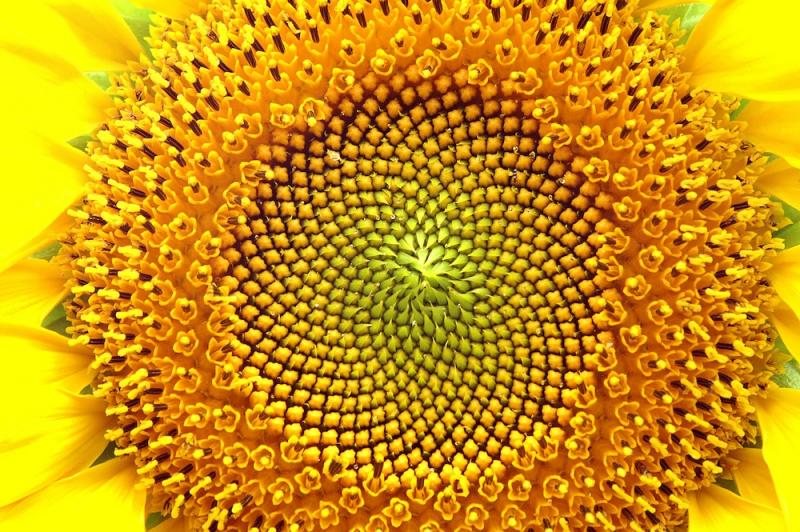 This issue with self-worth arises from problems with a father or father figure in childhood. The sun represents the father, so the self-esteem of the person needing sunflower is dependent on external (especially male) attention and approval. When it’s there, they lift their head (and self-image) up, when it’s not present, they bow their head (and self-esteem) down.
This issue with self-worth arises from problems with a father or father figure in childhood. The sun represents the father, so the self-esteem of the person needing sunflower is dependent on external (especially male) attention and approval. When it’s there, they lift their head (and self-image) up, when it’s not present, they bow their head (and self-esteem) down.
Sunflower can help both people who boast and puff themselves up and people who suffer from false humility and put themselves down to find a balanced sense of self-esteem. It helps them find the inner sunlight that gives them a sense of dignity and self-worth that isn’t dependent on outside recognition or approval.
I was once asked, what’s the difference between having self-esteem and being egotistical. My answer reflects the state that sunflower flower essence helps to create. “Self-esteem,” I told them, “is when you know that you’re valuable and wonderful, but so is everyone else.”
I hope this helps give you a new appreciation for the sunflower. Maybe you’ll want to add some sunflower seeds or sunflower oil to your health program or even try a little of the leaf as a topical first-aid remedy. Perhaps it may even encourage you to stand tall and strong and seek the light just like the sunflower does.
Steven's Articles
-

-
Eucommia Bark
A superior tonic that promotes kidney, structural,…
January
-

-
Goldenthread, Phellodendron, and Yellow Root
Three herbal remedies containing the infection-fighting…
-

-
Teasel
A traditional herb for healing bones and joints…
-

-
Barberry and Healthy Personal Boundaries
A thorny shrub for fighting infections and supporting…
December
-

-
The Evidence for Berberine
A yellow alkaloid found in traditional infection-fighting…
-

-
The Sensible Use of Caffeinated Herbs
Kola nuts, guarana, and yerba mate and other herbs…
-

-
The Health Benefits and Problems with Coffee
This popular caffeinated beverage can be beneficial…
October
-

-
Understanding Caffeine & Cellular Adaptation
Preserving the power of caffeine's buzz and the…
September
-

-
Horseradish
A pungent spice for aiding protein metabolism…
-

-
Banaba or Crepe Myrtle
A beautiful tree from Southeast Asia whose leaves…
August
-

-
Monkeyflowers
Flower essences to help see ourselves more clearly…
-

-
Mariposa Lilies
Strengthening the bond between mother and child…
-

-
The Noble Bay Leaf
A common kitchen herb for aiding digestion and…
-

-
Epimedium: Horny Goat Weed
A circulatory stimulant and kidney yang tonic…
July
-

-
The Medicinal and Nutritional Benefits of Apricots
A nutritious fruit and valuable medicinal seed for coughs

